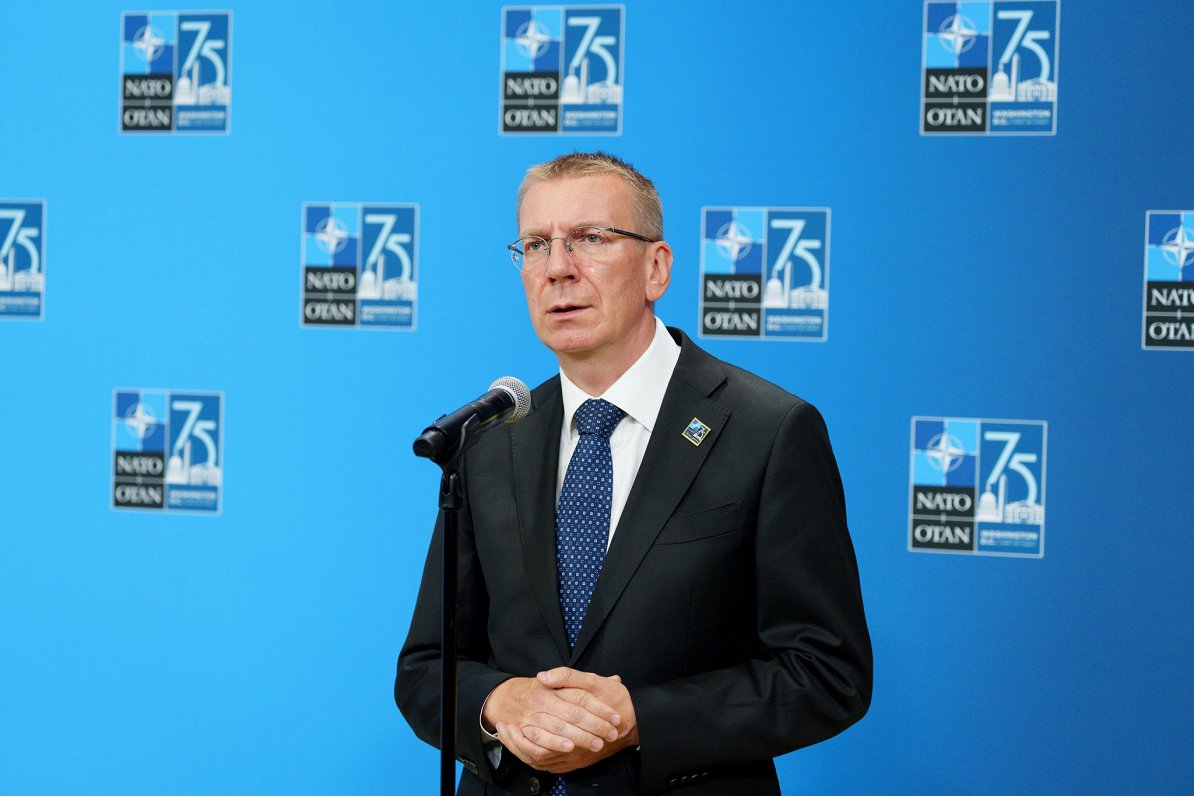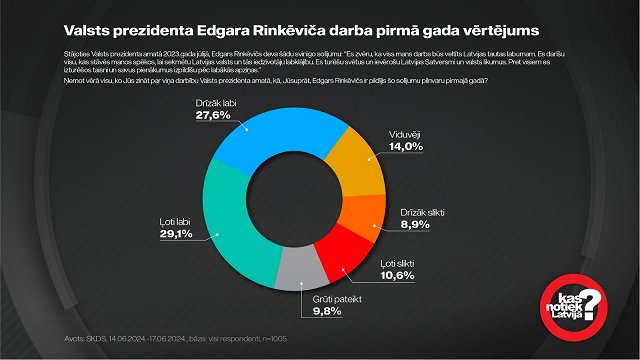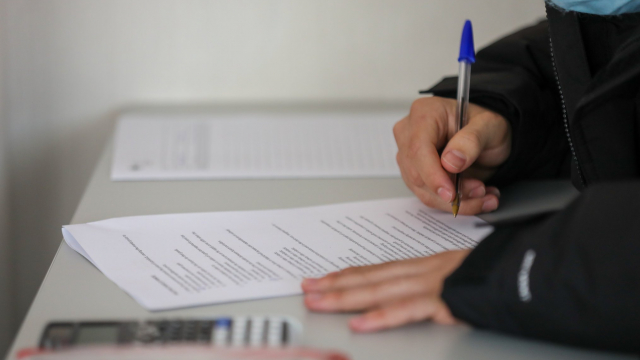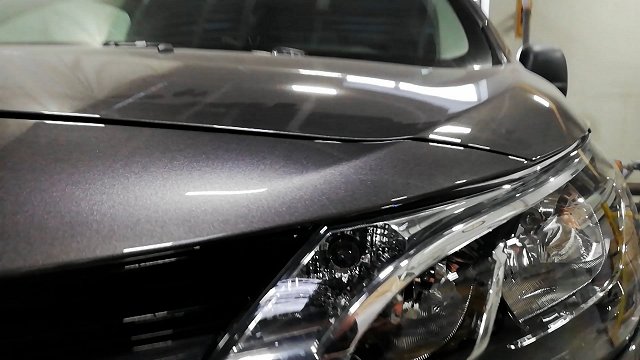"The further you are from Ukraine, the more society and also many statesmen and stateswomen think that this threat is less real," President Rinkevičs said in an interview with Latvian Radio at the NATO summit in the United States.
The summit of NATO leaders ended in Washington on Thursday evening. In the final statement, it was confirmed that Ukraine's relations with the alliance will continue to develop, however, as widely expected, the NATO allies are not yet ready to formally offer membership to Ukraine.
Latvian Radio correspondent Artjoms Konohovs spoke to President Rinkēvičs in Washington, with a translation of their conversation provided below.
AK: The summit is coming to a close, we are now meeting here in Washington, at the summit venue. On Wednesday, you said that good decisions are expected for the Baltics. Tell me more, what do you think are these good decisions that have been approved?
ER: Everything that affects those initiatives that strengthen airspace protection, air defense, everything that concerns the necessary scope of powers for the commander of NATO's armed forces in Europe. It must be said that, let's say, the discussion was perhaps more pronounced in Latvia than outside Latvia, about the applicability of Article 5 from the first second, the first minute. A range of questions that undoubtedly also affect the integration of Sweden and Finland – and for us this is an essential matter – in the structures of the NATO team. There, too, the discussion will continue, because you cannot achieve it with one decision in one day. It is a transformation of the command system. These are the things that go forward.
Of course, what is also very important to us is that also in the closed first session yesterday, several more countries announced that they are going to 2% [of gross domestic product spent on defense], several countries announced that they are going above 2% on defense, which essentially confirms that European allies, and not only European allies, are taking all these threats more and more seriously and that defense spending is and will be increased.
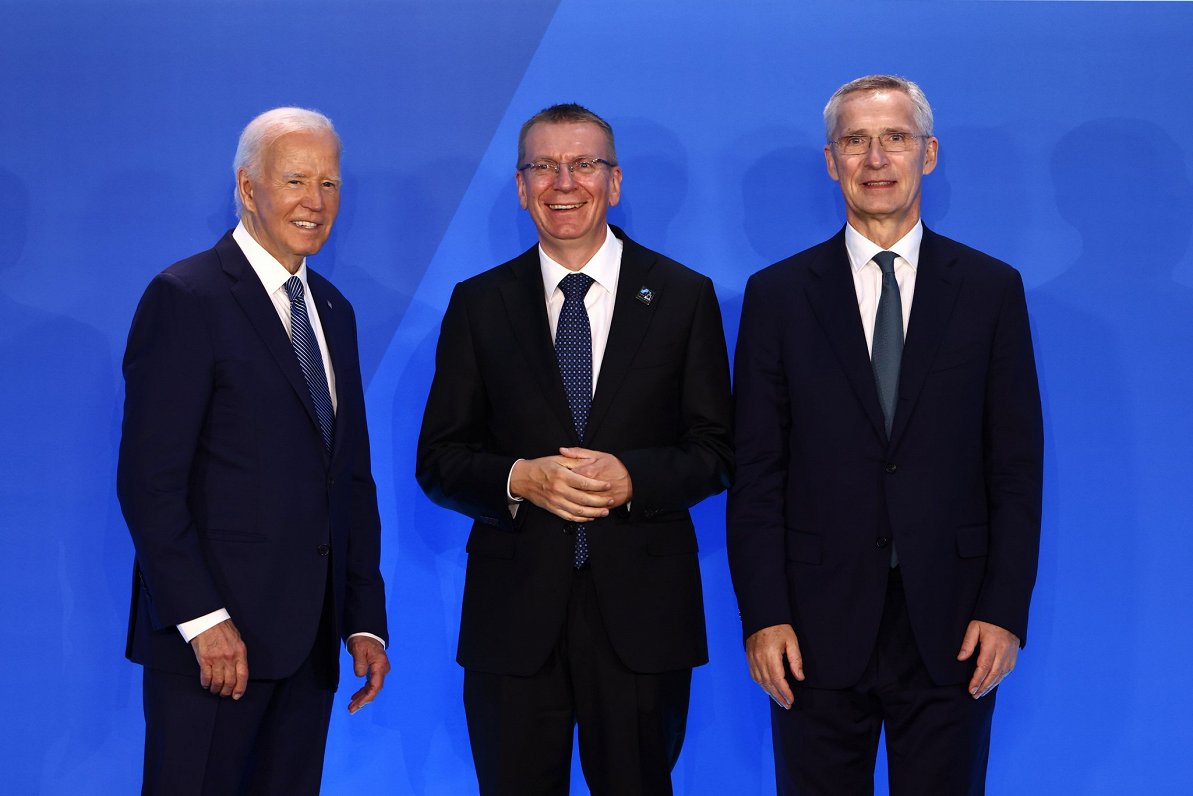
Strategically, this is important, if only considering that we are now in the United States, where the discussion that Europe is not doing enough for its defense and therefore America should hardly invest so much is relevant. The fact that 23 NATO member states out of 32 allocate 2% for defense seems like yesterday the NATO Secretary General said that five are already above 3%, by the way Latvia also currently has 3.17% - this is an additional investment in our defense that the government decided very recently, but also, of course, it is partly related to economic development, because maybe gross domestic product is not developing as well as we would like. But anyway - the reality of it right now is that we are already in that 3% community. That's the good news.
AK: The experts I have spoken to say that NATO is currently evolving, but given the threats that exist in the world – not only Russia, but also China, Iran, North Korea – there should be a leap, there should be a faster overall development.
ER: You see, here is the misfortune that perhaps needs to be taken into account. Experts are rational, pragmatic thinking people who have no political responsibility to the voters. Politicians have a responsibility to the electorate, and the unfortunate thing is that politicians have to convince the electorate that investment in defense is needed more quickly - we talked about that quite a bit yesterday, by the way - but the unfortunate thing is that people also want to see investment in health and prosperity.
Like it or not, the further you are from Ukraine, the more society and also many statesmen and stateswomen think that this threat is less real
On the other hand, for example, the countries of the southern flank talked a lot about things that are important – migration, terrorism, instability in the Middle East, Africa. They, in turn, try to use these arguments more for the need to increase defense and security spending than for [aid to] Ukraine. So I would say, of course, we would like a faster, faster understanding of the increase in defense spending, but we have to take into account the fact that politicians in many countries have different pressures, which are often not only pragmatic, but also emotional, and therefore also in each other in the country those decisions are made now. Many talk about only achieving 2%, although objectively I would say the average should be 2.5%. Will we get there? Let's see what the next summit in The Hague in 2025 will be like for us.
AK: If we talk about the support that Ukraine has received, this time there has been a lot of discussion about the diplomatic phrases in the statement, about the words "irreversible rapprochement" or "irreversible path" towards membership. Some say that nothing is irreversible, considering that Ukraine still has to implement all reforms, fight corruption and many other things. But beyond this word "irreversible" approach, what can we say? What has Ukraine received and is it enough to keep fighting?
ER: I would say that this fight for words or specific formulations is an integral part of almost every summit - be it a NATO or UN or European Union summit. It just happens. Of course, politically it is important that such wording appears, but much more attention, much more attention and more importance should be directed to their practical decision on the amount of aid to Ukraine. NATO members commit to allocating more or less 40 billion [euros] – then we will see how the situation will develop in the coming years, how much help will be needed.
I would say that this is the absolute minimum for Ukraine to continue fighting, but it is good that at least we have this amount, this amount of aid, marked for now. Yes, a lot of things will of course depend on how the election process here in the US turns out, who wins, what the situation [in Ukraine] will be like at the end of 2024. But at least from NATO's point of view, the money is earmarked, the support mechanism is earmarked, and that, I think, is even more important than the discussion about what word to include in the declaration. Although diplomats will definitely disagree with me and say that declarations are also important, but as a practitioner I would say that support, practical support is more important at the moment.
AK: There was also a lot of talk - and you yourself mentioned the upcoming US elections - that NATO should be made "safe against Donald Trump". To what extent has it been successful, considering that the American president still has a very large influence both in NATO and in the country, and that no support can be promised far ahead?
I would like to look at this matter not in such an angry emotional atmosphere of political rhetoric, but to look at it from a different point of view. If we want a strong NATO, Europe – and not only Europe, there are also certain allies outside Europe - there simply needs to be allocated a much larger amount of funds to defense and mobilize the defense industry. Because in essence, the criticism that Europe is not doing enough has already sounded not only from President Trump in his time, it has also sounded from President Biden, it has sounded at one time from President Barack Obama. Let's remember that in 2014, the Wales summit had the first discussion after the occupation of Crimea about the fact that everyone should spend at least 2%. Another 5-6 years later - but it seems that at that moment there were some 28 member states, of which, if I'm not mistaken, only eight spent 2%. But now it's 23! Understanding and progress is building.
But if we want to be of interest to the United States of America, if we want the United States to be, regardless of who the next president of the United States is, a real guarantor of our security, we have to do more. What I'm seeing right now was a number of countries – I don't know if they're going to come out publicly now or not, let the leaders of these countries say it themselves – a number of countries announced yesterday that they're going to increase defense spending quite significantly, and so that is good news.
But the only way to strengthen and protect NATO is not to constantly whine and worry about the outcome of the elections in America, but to do more ourselves. Everything else, frankly, is also part of the kind of political rhetoric that I frankly would not want to engage in.
